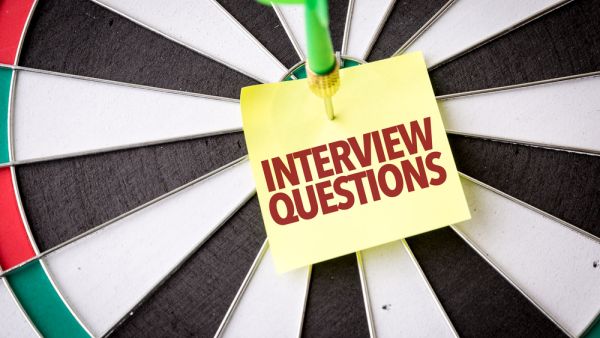Job applications can be overwhelming sometimes, and many great applicants think that once they land an interview the hard part is over. However, the reality of things is that the interview is the most crucial step that determines whether or not you will get the job.
Nailing an interview does not only have to do with confidence and skills, but instead it requires practice so that you can avoid any jitters that might arise.
And to make things easier, here at 9 most common interview questions and how you can best answer them:
1. Tell us more about yourself
This is a guaranteed question in most interviews that can help the interviewer better understand who you are as a person. It is important that you come prepared and know what the points you would like to share. You need to make sure you mention your most important milestones, achievements, and why you think this might be the right next step for you.
Talking about your education, past experiences, current job and future ambitions is a pivotal part of answering this question. However, make sure that you do not dig too deep and talk about personal things that are irrelevant.
2. Why do you want to leave your current job?
The way you answer this question will speak volumes about you on both a professional and personal level. Make sure you answer honestly without disrespecting your current employer or making it personal. Mentioning how you believe your current job can be improved can also signal that you have the ability to offer positive solutions.
In addition, highlighting your interest in the job you are applying for and how it will help you grow on a personal and professional level can show that you know what you want and are willing to pursue it.
3. What are your strengths?
As overused and cliché as this might sound, this is one of the most asked interview questions. And contrary to what many think, you do not have to mention a strength that is on your resume, instead make sure to mention something that has to do with the job posting. You will also need to provide evidence and supporting examples of this strength.
4. What are your weaknesses?
The same way interviewers are interested in your strengths, chances are they will also be interested in the skills and areas you need to work on. When answering this question, you should keep two things in mind.
First is that you need to avoid mentioning any required skills mentioned in the job posting as a weakness. The second thing is that you also need to mention that this area of weakness is something you are working to improve. Showing that you have a growth and solution oriented mindset can go a long way.
5. Where do you see yourself in 5 years?
This question can feel challenging for many, especially for those of us who are still not sure what their career plan looks like. However, conveying that you are lost and saying “I do not know” is a complete no-go!
One way to help you navigate your way around this question is to answer in a general way and include the needed skills for this job. You can also mention how your plans align with this job, and why you believe it can help you achieve your career goals. For instance, giving examples on where you see yourself in relation to this job in the coming years can reflect how committed and interested you are. It is really instrumental to give solid ideas of where you see yourself in terms of the job you are applying for.
6. Give me an example of a stressful situation that you handled well
There isn’t a job in this world that is completely stress free, and knowing how to deal with stress is an important indicator of whether or not you are a good candidate. When answering this question, make sure you show that you are aware of workplace stress and how you have previously overcome it. Not only that but also mentioning important skills like communication and teamwork that you have can also better support your answer.
7. Why do you want this job?
The aim of this question is to test whether or not you have done your research. In fact, the way you answer this question will help the interviewer see if you have put in the time and effort to learn about the company you are applying to. In addition, by doing your research you can better articulate an answer that aligns with the company’s values and mission.
8. Why should we hire you?
For this question, you need to wear the salesperson hat!
The interviewer wants to see what skills and experience you will add to them. It is imperative that you answer this question by referring back to the job description and selling yourself in a way that makes you seem like you are the perfect fit!
9. Do you have any questions?
Asking questions means that you have done your research, you were attentive throughout the interview, and you are really interested in the job. This is your chance to show the interviewer that you are paying attention and that you can come up with relevant and logical questions that can help you better understand the job posting.
Here are some questions that you can ask the interviewer in your upcoming interview:
- “Can you tell me more about the company culture and the team I will be working with?”
- “What are some of the biggest challenges people in this department have faced?”
- “What is the career path for this position?”
- “How do you measure your team’s performance?”









